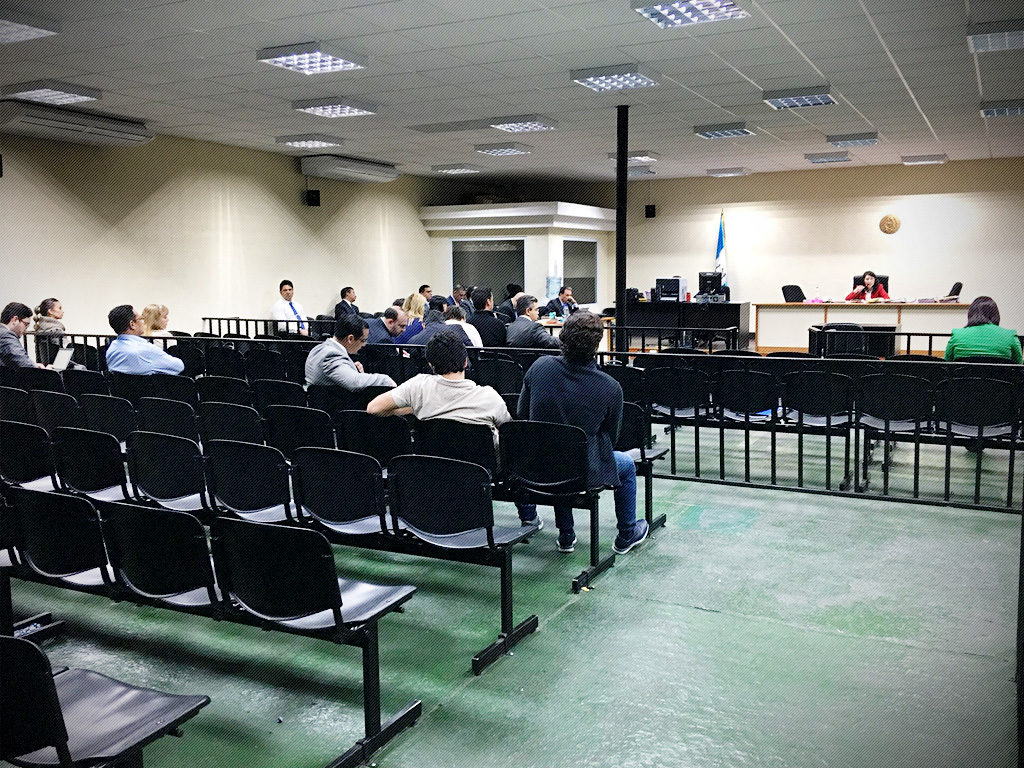STATEMENT 099 | Photo: Publinews.
The Judge of High-Risk Court “D”, Erika Aifán, resolved today to bind over for trial the 13 defendants accused of paying bribes to a high-level structure led by Alejandro Sinibaldi, former Minister of Communications during the Government of Partido Patriota, in exchange for the payment of debt or the awarding of new public projects to contractors.
In the initial hearing statement, the Judge considered that there was sufficient evidence for the accused to face criminal proceedings for the following crimes:
- Jorge Rodolfo Ortiz Asturias. Conspiracy, two crimes of illegal money or other assets laundering, and embezzlement.
- Delfo Juan Carlos Cepollina Cabrera, conspiracy,assets and money
- María José PepióPensabene, embezzlement.
- Erick Armando Soto Herrera, embezzlement.
- Claudia Carolina Ruano López de Vásquez, complicity in assets andmoney laundering.
- Oscar Augusto López Villeda, unregistered electoral financing.
- José René González Campo-Hinojosa, unregistered electoral financing.
- Lindsay Sabrina Rivadeneyra Salazar, complicity in assets and money laundering.
- Otto Emilio SantanoCintora, complicity in assets and money laundering.
- Carlos René Micheo Fernández, assets and money laundering.
- William René Méndez, obstacle to criminal action.
- Gustavo Adolfo Estrada Ramírez, obstacle to criminal action.
- Mario Roberto Méndez Álvarez, obstacle to criminal action.
Arguments
Concerning the crime of unregistered electoral financing, Judge Aifán argued that the defendants were bound over to trial for this crime because the conduct is equivalent to the offense repealed (407 N of the Penal Code), and the anonymous contributionswere not decriminalized.
Also, the judge argued that the principle of legality is not violated because the events took place when the article 407 N of the Penal Code was in force, and the crime currently applied (407 O of the Penal Code) includes the same actions that are reprehensible.
Therefore, the judge said that there was a law in force before the commission of the crime and although it is now called differently, the anonymous contribution continued to be punished.
The judge scheduled the discussion of the defendants’ coercive measures on December 3.
Background
On August 14, 2017, the Attorney General’s Office and CICIG presented the ‘Construction and Corruption’ case, which established the existence of a high-level structure led by Alejandro Sinibaldi, former Minister of Communications.
As demonstrated in Phase I of this case, the structure asked contractors to pay bribes to the Ministry of Communications in exchange for payment of the debt corresponding to projects in process or already completed.
Phase II identified other modalities of bribery: payments made abroad (through off-shore companies) simulating advisory contracts or loans; payments for consulting services; bribes payments for illegal electoral financing and procurement of goods.

